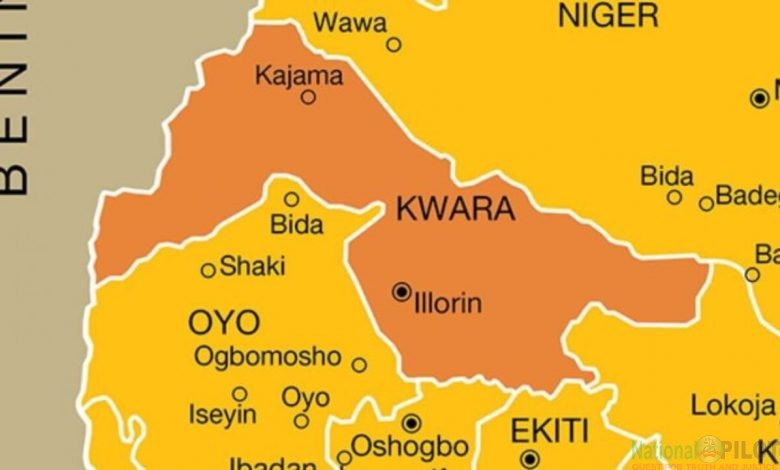Poverty deepens in Kwara as inflation jumps to 18.45%; residents lament

By Mike Adeyemi
Some residents of Ilorin, the Kwara State capital have expressed worry over the increasing prices of staple food items in the markets.
The residents, who spoke to our reporter penultimate Friday, said that the prices of food items were becoming unbearable.
A housewife, Monsurat Alaya said that the current prices of food items, if not controlled, would be beyond the reach of most families.
Alaya said: ” a small rubber paint container of beans is now selling at the rate of N2,700 as against N1200 to N1500 that we bought it about six months ago.
“We are now buying a tin of local rice N10,000 as against N8, 000.
“The price of rice is not too stable, at a point, we even bought a tin of rice at the rate of N12, 000.
“A packet of Star Maggi seasoning is now sold for between N580 and N620 against N380,” she said.
Another resident, Miss Ibukun Akeredolu, said that the hike in price of food had forced her to cut down on the quantity she usually bought.
She noted that with the rising cost of food items in the market, most families would no longer be able to afford them and feed properly.
“Just imagine that a bottle of palm oil that we usually buy for between N250 and N300, is now N800.
“A bag of onions is now N12,000 as against N7, 500 that we bought early this year. This is gradually becoming unbearable for us,” Akeredolu said.
A check by our medium to some markets in the metropolis revealed that prices of both food and non-food items had increased significantly.
National Pilot reports that even the price of noodles, commonly eaten by most residents has increased as a carton of Indomie (hungry man) now sell for N4,100 as against N3, 000.
‘Larongbe Uzain, a food item seller at the popular Oja-Oba Market attributed the rising cost of food items to several factors including high cost of transportation and insecurity.
He said that unless government intervened in the situation the prices of food items would continue rise.
Recall a new report by NBS, Nigeria’s statistics office, said that composite food index rose by 18.34 per cent in October 2021 compared with 17.38 per cent in October 2020.
The nation’s headline inflation was also put at 15.99 per cent, marking a second-month consecutive decline, the office said.
The data was relayed by Simon Harry, the Statistician-General of the Federation on Monday in Abuja at a media conference while presenting the October Consumer Price Index (CPI).
The report attributed the rise in the food index to increase in prices of food products such as coffee, tea and cocoa, milk, cheese and eggs, bread and cereals, vegetables and potatoes, yam and other tubers.
However, on month-on-month basis, the food sub-index increased by 0.91 per cent in October, down by 0.35 per cent points from 1.26 per cent recorded in September.
The ”All items less farm produce” or Core inflation, which excludes the prices of volatile agricultural produce stood at 13.24 per cent in October, up by 2.10 per cent points when compared with 11.14 per cent recorded in October.
According to the report, on month-on-month basis, the core sub-index increased by 0.80 per cent in October, down by 0.44 per cent point when compared with 1.24 per cent recorded in September.
“The highest increases were recorded in prices of gas, fuels and lubricants for personal transport equipment, vehicle spare parts, non-durable household goods, solid fuel, passenger transport by road, passenger transport by air, garments and cleaning.
Others are repair and hire of clothing, major household appliances whether electric or not, wine, clothing materials, other articles of clothing and clothing accessories and Liquid fuel,” it said.
Harry noted that the headline inflation reduced from 16.63 per cent recorded in September, indicating a 0.64 per cent decline.
The report, on month-on-month basis, indicates that the headline index increased by 0.98 per cent in October, indicating a 0.17 per cent decline than the 1.15 per cent recorded in September.
It also said the percentage change in the average composite CPI for the 12 months period ending in October over the average of the CPI for the previous 12 months period was 16.96 per cent, showing 0.13 per cent point from 16.83 per cent recorded in September.
It said, “The urban inflation rate increased by 16.52 per cent (year-on-year) in October 2021 from 14.81 per cent recorded in October 2020, while the rural inflation rate increased by 15.48 per cent in October 2021 from 13.68 per cent in October 2020.
“On a month-on-month basis, the urban index rose by 1.02 per cent in October, down by 0.19 per cent than the rate recorded in September (1.21) percent, while the rural index also rose by 0.95 per cent in October, down by 0.15 per cent than what was recorded in September (1.10) per cent.
CPI measures the average change over time in prices of goods and services consumed by people for day-to-day living.





